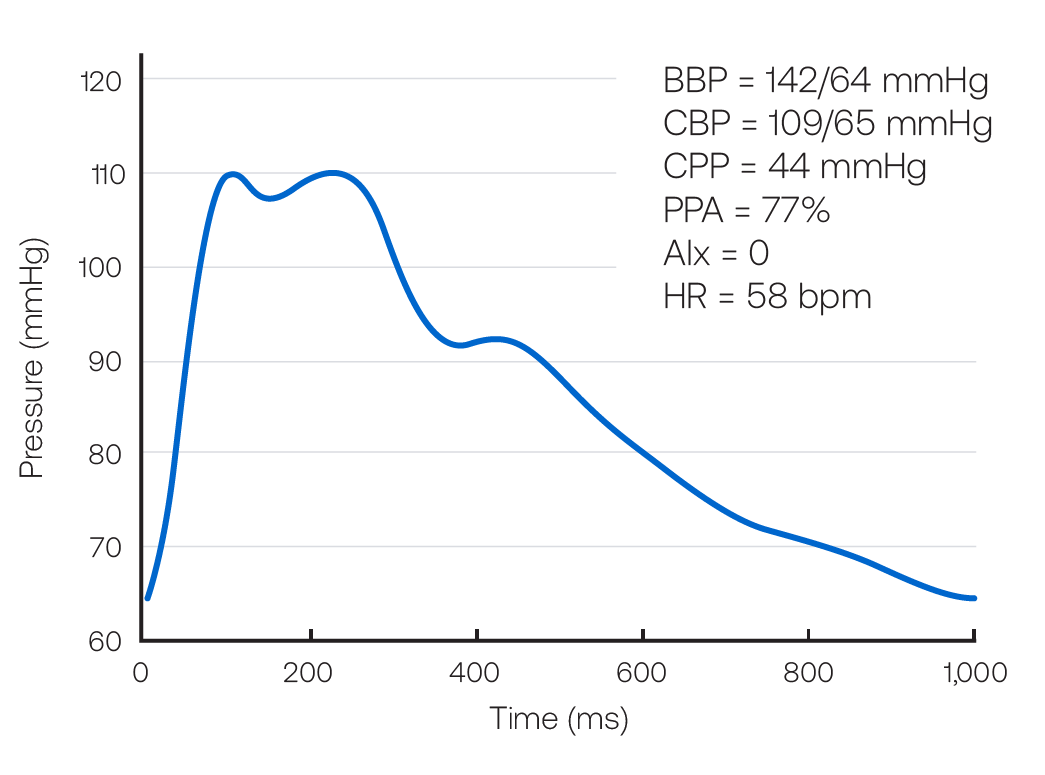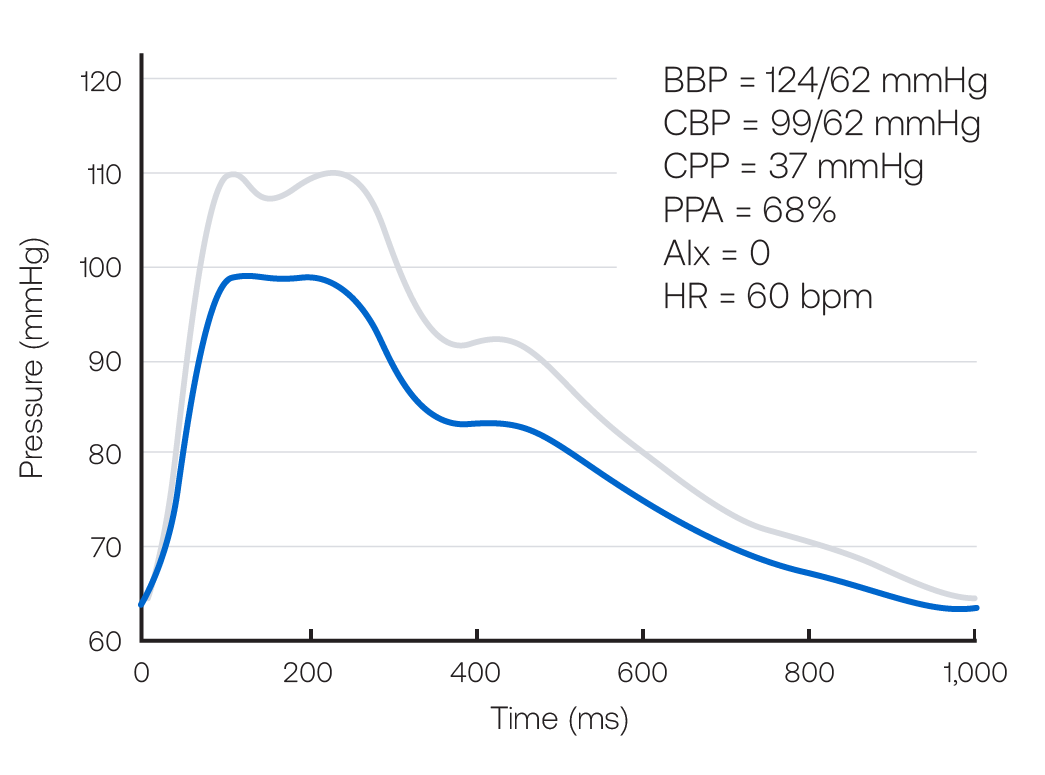
33-Year-Old Male with Persistent Systolic Hypertension*
February 14, 2024
64-Year-Old Male with Hypertension and Comorbidity
February 14, 2024Personalized Treatment Regimen Following Pulse Wave Analysis
41-Year-Old Male with Untreated Hypertension
Patient Medical History
- 41-year-old sedentary male
- No comorbidities
- No current Rx regimen
Initial Digital Vascular Biomarker Assessment
| Brachial Blood Pressure | 144/64 mmHg |
| Central Systolic Blood Pressure | 109 mmHg |
| Central Pulse Pressure Amplification | 77% |
Initial Assessment Interpretation
This male patient’s substantial pulse pressure amplification (brachial 78 mmHg/central 44 mmHg; 77%) and the central systolic BP < 124 mmHg argues against drug therapy.
Figure 6. Central Pressure Waveform

BBP indicates brachial blood pressure systolic/diastolic; CBP, central blood pressure systolic/diastolic; CPP, central pulse pressure; AIx, augmentation index; HR, heart rate; bpm, beats per minute.
Intervention
An exercise regimen was recommended and followed.
Follow Up Digital Vascular Biomarker Assessment
| Brachial Blood Pressure | 124/62 mmHg |
| Central Systolic Blood Pressure | 99 mmHg |
| Central Pulse Pressure Amplification | 68% |
Follow up Assessment Interpretation
Following a three month exercise regimen, this male patient shows brachial systolic pressure improvement and continued substantial pulse pressure amplification (brachial 62mmHg/central 37mmHg; 68%). No additional pharmacologic therapies were prescribed and he was encouraged to continue the exercise program.
This clinical case study supports two important clinical decisions. One was not to pharmacologically treat a modest brachial systolic pressure elevation. The other was to support the value of exercise, which improved the patient’s brachial blood pressure without loss of the advantageous central pressure profile.
*Townsend RR et al. Journal of Clinical Hypertension. 2015; 17:7, 503–513.
http://bit.ly/2gc5mdD
Figure 7. Central Pressure Waveform

Other Case Studies
